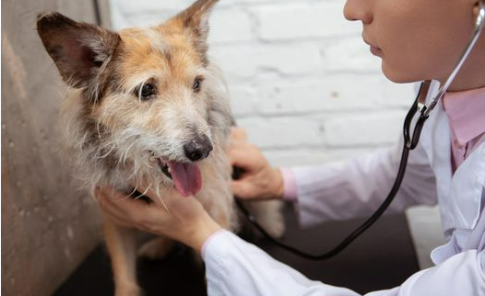

Veterinary care is essential for our beloved pets, but it can sometimes come with a hefty price tag. From routine check-ups to unexpected emergencies, the cost of veterinary care can quickly add up and become a burden for many pet owners. However, there are steps you can take to navigate the high cost of veterinary care without compromising the well-being of your furry friend.
Just like with any other product or service, it's important to research and compare prices for veterinary care. The cost of services can vary significantly between different clinics and hospitals. Look for veterinary practices that offer transparent pricing and provide estimates for procedures and treatments. By doing your homework, you can find affordable options without compromising on quality.
Investing in pet insurance can be a game-changer when it comes to managing veterinary costs. Pet insurance plans can cover a portion or all of your pet's medical expenses, depending on the policy. Take the time to compare different pet insurance providers and find a plan that suits your budget and your pet's needs. Having pet insurance can provide peace of mind and help you manage unexpected veterinary expenses.
If you're facing financial hardship and struggling to afford veterinary care, there are organizations and programs that can help. Some non-profit organizations offer financial assistance specifically for veterinary expenses. These organizations may provide grants or low-cost loans to pet owners in need. Additionally, some veterinary clinics offer payment plans or discounts for low-income individuals. Reach out to local animal welfare organizations and veterinary clinics to inquire about financial assistance options available in your area.
Prevention is always better than a cure, and this applies to veterinary care as well. Regular check-ups, vaccinations, and preventive treatments can help keep your pet healthy and prevent costly medical issues in the future. By investing in preventive care, you can potentially avoid expensive treatments and surgeries down the line. Consult with your veterinarian about the necessary preventive measures for your pet and ensure they are up to date on vaccinations.
Your veterinarian is there to help you and your pet. If you're facing financial challenges, don't hesitate to have an open and honest conversation with your vet. Explain your situation and express your concerns about the cost of veterinary care. In some cases, your vet may be able to suggest more affordable treatment options or work out a payment plan. Good communication can go a long way in finding solutions that benefit both you and your pet.
If your pet is facing a significant medical issue or requires a costly surgery, it's always a good idea to seek a second opinion. Different veterinarians may have different approaches and recommendations, and seeking a second opinion can help you make an informed decision. Additionally, other clinics or hospitals may offer more affordable options for the same treatment. Gathering multiple opinions and quotes can help you make the best decision for your pet's health and your wallet.
Planning ahead and saving for veterinary care can alleviate some of the financial burden. Set aside a designated amount of money each month specifically for your pet's veterinary expenses. This way, you'll have funds available when needed and won't have to scramble to come up with the money during an emergency. Creating a budget and saving specifically for veterinary care can provide peace of mind and make it easier to manage the cost of care.
In conclusion, veterinary care can be expensive, but there are ways to navigate the high costs without compromising your pet's well-being. By researching prices, considering pet insurance, exploring financial assistance programs, prioritizing preventive care, communicating with your veterinarian, seeking second opinions, and budgeting for future expenses, you can ensure that your furry friend receives the care they need while managing your finances effectively.